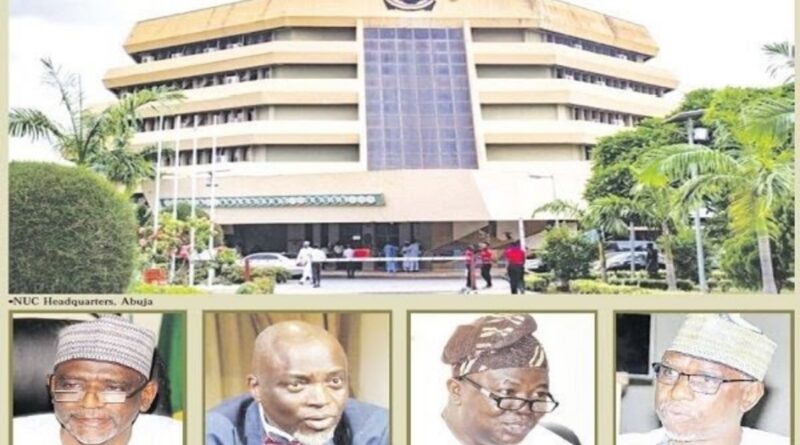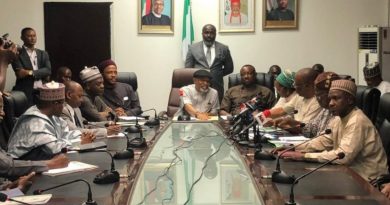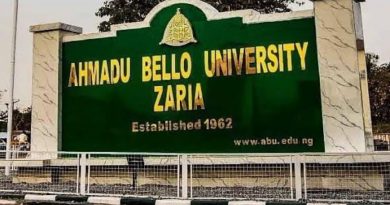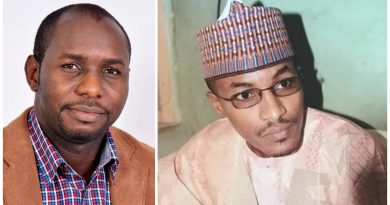Special Report: More Universities, Depreciating Quality
The country’s universities are increasing regularly, but experts are concerned about the quality of higher education on offer. FRANK IKPEFAN (of The Nations) reports that it is believed that private varsities lay emphasis on profit.
On February 5, the Federal Executive Council presided over by President Muhammadu Buhari approved twenty new private universities to operate in the country.
The president directed the National Universities Commission (NUC) to give them provisional licences to operate.
Minister of Education Adamu Adamu last week Thursday handed their certificates of operation to officials/ representatives of the universities at the NUC headquarters in Abuja.
It was the first time the government will be granting approval for that number of universities in the country.
But while the government argued that the move is a way of opening up the space and creating access to higher education, stakeholders, especially the Academic Staff Union of Universities (ASUU) have raised concerns about the quality of education they will offer.
That concern has been re-echoed by Joint admissions and Matriculation Board (JAMB) Registrar Prof Is-haq Oloyede.
Prof Oloyede, while presenting a paper at a pre-mobilisation workshop for 2021 Batch A corps members organised by the National Youth Service Corps, accused some tertiary institutions of helping to mobilise illegal students for national service.
According to the registrar, most of the institutions given licences to operate should have no business in education because their sole focus is profit driven.
The registrar accused some of them of putting money ahead of offering quality education to the people. His position is also shared by ASUU President Prof Biodun Ogunyemi.
Aside accusing some of the institutions operating in the country of being profit-driven without offering real service, the former Vice – Chancellor of the University of Illorin, also accused them of using their certificates to damage the integrity of the country.
In 2019, NUC Executive Secretary Prof Abubakar Rasheed said Nigerians spent N500, 000 – N1m to purchase certificates, mostly from mushroom institutions, confirming Oloyede’s fears of institutions churning out certificates that are questionable.
Prof Oloyede said: “The degree mills, they are also participating. Unfortunately, we have so many institutions now being licensed to operate. Many of them have no business to be in education. All they want is money and they are just using the certificates they have to run these institutions to continue to damage the integrity of this country.
“It is possible, and you can go and try it; you can get many institutions in this country without going to secondary school or going to anywhere they can register you and place you on 400L and you will graduate next year when you pay the appropriate money; it is certain.
“It is something I have seen and I have tested and if you challenge me, I will say please let us get it done now. I have tried it and I have seen that is is working.
“I know of a polytechnic that I don’t, in JAMB, take their certificate. If you like go to anywhere I will not take their certificate because here I have two or three persons who are working with me, who never left (work) anytime and suddenly came back with certificate of your colleague.
“I have experience to say many of them but what people don’t realise is that no organisation is too big to be destroyed. There is no organisation that is too big to be destroyed.
“What is happening now is that the institutions are contributing and the degree mills too. The certificates are fraud.”
Ogunyemi wondered why the government continues to create new universities when the existing ones are not viable.
He said: “ASUU has always argued against the proliferation of universities – whether private or public. When it comes to private universities, the primary motive is not quality. The primary motive is essentially about profit.
“Most of the private universities that we have at the moment are charging fees that are not affordable to the majority of admission seekers and that is responsible for why up till date they cannot boast of more than five per cent of student population in Nigerian universities.
“If that is the situation, we need to ask why we continue to create new ones when the existing ones are not viable. When you visit those universities, all they have to show mostly are structures. They use the structures to deceive people. Structures do not make universities. What makes universities, primarily, is the quality of teaching and research and the caliber of personnel, particularly academics in those universities should determine whether we have a university or a glorified secondary school.
“The structures that you have in many of these universities are deceptive and you will find out that some of these universities as we speak today have less than twenty per cent of their capacity in terms of their facilities – hostels, lecture rooms and others. But when you look from afar, you cannot see through them and so they deceive people.
“Unfortunately, those who continue to invest in private universities give us the impression that more Nigerians will be admitted and that they are providing the facilities to expend admission spaces in our tertiary institutions, particularly in our universities.
“However, it has turned out not to be correct because the question of affordability is never taken into account. Affordability is a different question as against availability. Before the licencing of twenty new private universities there were 79, today there are 99 private universities. But you can imagine 99 private universities accounting for five per cent of student population. Whereas, the remaining 93 public universities have over 90 per cent of the students.
“We always ask government: where should the attention go? Do we continue to say private university is the solution when two third of Nigerians cannot afford the cost of private education because they can barely feed? ”
The university don also faulted the NUC – the regulatory body of universities in the country.
According to him, if the commission applies strict measures, many of the existing private universities in the country would not be in operation.
“Our concern has always been that government is not sincere with Nigerians. If the criteria were stringently adhered to, if we keep strictly to the guidelines, many of these private universities would not have been licensed.
“At the end of the day, private universities, more often than not, do compromise academic standard. But because they have been licensed; probably they will have a window of five years to manipulate things and while that is happening, existing public universities will continue to suffer because their academic staff members will now be enrolled into private universities.
“The establishment of private universities on the whole has not really brought a significant improvement we want to see in university education in Nigeria. I must admit that one or two are struggling or I can say have broken even. What percentage is that? If you have 99 (private universities) and you can only point to two or three, then this calls for concern,” Ogunyemi added.
However, Adamu at the function last week appeared to disagree with those against licensing of new universities.
The minister said the existing 193 universities operating in the country were not enough to take care of the growing need for tertiary education in the country.
The minister said: “Government is also well aware that countries that are consistently well-ranked in Human Development indices have, in recognition of the important role of universities in human capital development, maintaining a respectable number of universities relative to their population.
“In relation to Nigeria’s population of over 200 million, the current 193 universities is quite low when compared to those of other economies such as Brazil (209 million) 441 universities, Mexico (126 million) 375 universities, Russia (1445 million) 741 universities.
“Despite the steady progress being made in this area of our national development, a random poll of the public opinion reveals some concern that the private universities had become too many. Comparative figures of universities in other countries attest to the fact that this is not the case.
“It is the collaborative efforts of the private individuals and group that made this possible for these nations and I believe will also enable Nigeria to close her own gap in the university education sub-sector.
“The above scenario indicates that Nigeria needs more universities. We shall therefore continue to encourage NUC to keep strengthening its quality assurance mechanism so that as the number increases, quality and relevance to national needs are not compromised.
“In 2019, the Joint Admissions and Matriculations Board (JAMB) announced that out of over 1.8 million candidates registered for the UTME, only 612,000 were admitted in Nigerian universities representing 34 per cent.
“This shows gross inadequacy in terms of access. Private universities have contributed to the opening up of admission space for the swelling population of candidates seeking university education.
“The growth of private universities in Nigeria has created an environment for healthy competition that stimulates improvement in quality service delivery in the system.
“The African Centres of Excellence Impact project has 44 universities from West and Central Africa, including seventeen centres in fourteen universities from Nigeria. Covenant University and Redeemers University both private universities are among the 14 universities participating in Nigeria.
“The provisional approval for these 20 universities to operate is intended to create room for effective mentoring and qualitative growth within the first three years of operation.”…says menace hampering economic development
The rising incidents of kidnapping on Nigerian roads is endangering the lives of young professionals in the country, a kidnap victim has said.
The victim, a young professional, who begged not to be named, said the development is making the prospect of emigrating to other countries more attractive than before.
The victim, who relieved his ordeal said the security situation has degenerated into a demographic profiling by kidnappers, who lay siege on Nigerian roads to identify young professionals and separate them from other victims.
He said young professionals may be facing extinction if nothing is done about the situation.
The victim, who works with a top commercial bank in the country, said government’s inability to curb kidnapping and other violent crimes is hampering socio-economic development efforts in the country.
“There is no gainsaying the fact that the menace of kidnapping is threatening development efforts in Nigeria, especially in the rural communities. When it all started, the high and mighty in the society were always the prime target. But in recent times, the tide has changed as all manner of persons are now at risk of being kidnapped.
“The nation’s high way are no longer safe as professionals are the most hit. The incident of January 2, 2021 along the Enugu–Port Harcourt Road when I was kidnapped in a commando style readily comes to mind. One Chinedu Zephaniah was also a victim of such kidnap on August 14, 2020”, he said.
According to him, many such committed professionals who execute assignments around the rural areas believe that if nothing is done fast, their peers will no longer be interested in risking their lives and traveling to the hinterland of the country participating in development efforts of the government.
He said, “Reports of both ordeals of August 14, 2020 and January 2, 2021 from several news sources paint a picture of a Nazi camp of the World War 2 era. Military styled ambush of moving vehicles, abduction of the driver and other occupants of the vehicle by four men who emerged from the nearby bush. Sporadic shootings on the vehicle etc.
“One of the kidnapped victims narrated his ordeal as ‘when we stepped into the forest, there were another four masked men, all in black. A total of eight kidnappers; five with AK 47, two with short guns and another two with cutlasses pruning trees as we all ran in a single file through farmlands initially and then into a thick forest.
“After 30 minutes of running, they stopped and allowed the three of us abducted to catch our breath for a few minutes, then we took off now walking briskly on narrow tracks. We were instructed to only step on grass through the tracks to avoid leaving our footprints on the sand. At about 7pm we stopped again to rest for about an hour before setting out for another four hours to the thickest part of the forest where we all slept till the next day. We were all beaten mercilessly. I had injuries. It was a walk through the valley of the shadow of death.
Recall that similar experiences abound of kidnapping especially along the major highways in the country. The Kaduna–Abuja road, the Okene–Lokoja–Abuja road among others which have become so notorious in recent years.
The victim further noted that travelers on the road also recount tales of woes especially during the Christmas holiday.
He said one of such travelers, who had a near encounter with kidnappers on December 26, recalled saying: “While traveling from Abuja to Okene, we came across stranded families. We saw wife and children along the road whose father had just been kidnapped. We also saw soldiers chasing the kidnappers into the bush. We were lucky to have escaped them”.
“But in Kaduna State, the Chairman of the Pentecostal Fellowship of Nigeria and his wife were not that lucky as the kidnappers stormed their house and took them away. An unidentified man in Ihiala, Imo state was gruesomely murdered by unknown persons. Across the land, the story has been the same, compounding the security challenges in the country. Development experts believe that if the government fail to taken concrete steps to address the menace, the impact on the Nigerian economy will be devastating”, the victim further warned.
Credit: thenationonlineng.net
For Advert Placement, Sponsorship, support, Article submission, suggestion, etc, Contact us: info@theabusites.com, +2349015751816 (WhatsApp)








